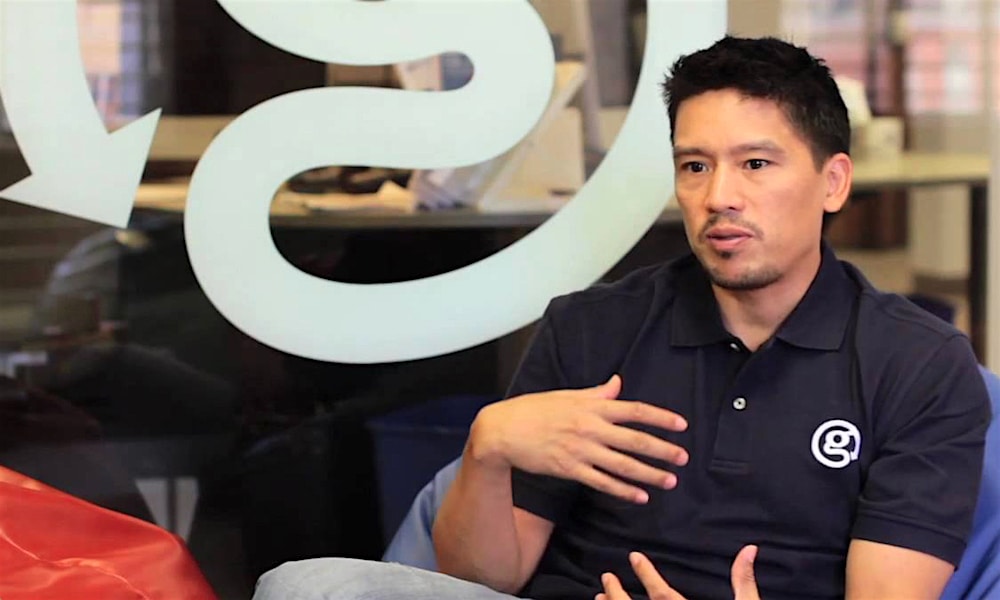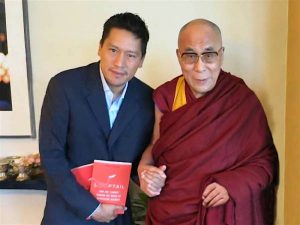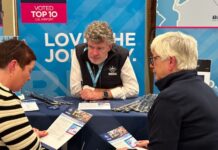
“Like all disasters, the Covid-19 pandemic has been proving to consumers the value of booking with a travel agent. It is also forcing all of us to re-set travel – and hopefully there will be many travel agents who will understand the post-pandemic trends and know how to re-assure people who may be nervous about travelling again,” said Bruce Poon Tip, Founder and Chief Executive of G Adventures, in an hour-long one-to-one interview with ITTN’s Neil Steedman.
During a Zoom media conference last week, Bruce wittily summed up our present situation: “We are all living in a bad Will Smith movie right now!”. After several attempts to write a public statement on behalf of G Adventures, he had concluded: “I was starting to sound like every footwear company and provider of fine salamis that had sent me their important message: ‘We’ll be stronger’, ‘We thank our community’…” – and thus ended up writing a 23-page ‘instabook’ that “is about you, me, and every traveller in the global community having the chance to rethink, restart, and rejuvenate the idea of what travel should be and could be. This is about the potential for travel to be anything we want it to be on the other side.”
UNLEARN
Entitled ‘UNLEARN: The Year the Earth Stood Still’, the instabook is available for free download at: www.unlearn.travel. Among topics covered are the importance of travel, the value of people’s freedom of movement, leakage in the travel industry, G Adventure’s approach to ‘community tourism’, and homestays – as well as Bruce’s ‘aversion’ to cruising and all-inclusive resort holidays!
“Human beings are capable of extraordinary things and adapt to changing conditions, whether they be through evolution or enforced,” Bruce told the media, “and technology will quickly override Governments’ attempts to ‘calm people down’ with border closures and 14-day quarantine periods – we don’t need that level of fear and that is bad leadership. Technology will work faster and will develop in months a simple mouth litmus test that gives immediate results – even for asymptomatic people.
“All travel companies are now at ground zero, but we have the chance to reinvent ourselves as an industry. Some people may never travel again, or at least for a long time, maybe until there’s a widely available vaccine, and the 60-70+ year olds may be the hardest group to ‘rebound’, but many others will leap at the first opportunities to travel, while a significant number of people will be borderline and will need reassurance.”
As does his first book ‘Looptail’, Unlearn refers to inspiration received from the Dalai Lama: “One of the greatest lessons I’ve learned from His Holiness the Dalai Lama is that we have to teach our own children – and ourselves – to be compassionate, not charitable. It’s the difference between being active rather than passive, engaging with the world rather than trying to help from afar, committing to acts that change not only the person you’re trying to help, but yourself as well. Travel, when you’re doing it conscientiously and with the Dalai Lama’s vital distinction in mind, can be an act of compassion.”

Fewer Travel Agents
Subsequent to the media conference, in a one-to-one interview with ITTN, Bruce referred again to travel agents: “Small businesses can perhaps withstand 30, 60 or even 90 days of little or no business, but if that extends to nine months or a year or more many may not survive. Those that do will have fewer competitors and more of the people travelling may appreciate the value of using a travel agent. As an industry we should be working together and I hope that many agents will seize the opportunity to offer their clients every option.”
Global Responses
How does he view the varied responses to the pandemic around the world? “I was surprised at how quick many Asian countries were to respond and get organised. Europe has had varied responses, with Italy the first and one of the worst cases but it locked down quickly and is now presenting a positive story. But the virus is rampant in the UK in Europe and in the USA in North America – they just haven’t been testing enough. One also wonders about the reliability of the number of cases reported by many Central/South American and particularly African countries – I suspect that the virus is widespread there but if you don’t test, then you don’t know.”
Unco-ordinated Messages
Asked if there was any hope that there would be some agreement and co-ordination in the recovery messages being issued daily by international organisations, Governments, and major industry suppliers, particularly airlines, a one-word response came quickly: “No!” – followed by: “It is even worse on news media, with contradictory reports coming hour by hour. What particularly concerns me is that some authorities are putting out opinions as if they were facts, which is very dangerous.”
Changes in Travel
“There will definitely be short-term changes in the way people travel. Many may not want to go into large crowds, either while travelling or in destinations, and some will not travel until a vaccine is found, but in general human beings have short-term memories. Two basic questions are: when will people be able to travel and when will people feel comfortable enough to travel? The answers may be by the end of summer and in the fall, but no-one really knows! I am still hoping for ‘a miraculous rebound’ – but then you see media reports that social distancing might last for years.”
Interactions Between Children
As part of its development of ‘community tourism’, is G Adventures considering how travel might encourage interactions between young children of different cultures, traditions and faiths? “In May last year we introduced our new National Geographic Families programme, which took 18 months to put together, and we have been learning from that. We are also looking at tours for teenagers, without their parents, that will make them ‘young explorers’. There is no better education than travel!”
Instant Translations
ITTN’s final question received an encouraging response: will technology also produce new, instant language translations that are far superior to the existing hand-held devices? “I have seen it! I visited a lab on a Google campus where two people speaking different languages used earpieces to have a seamless conversation with instant translation. I think we will soon see it as an app on our smartphones.”




